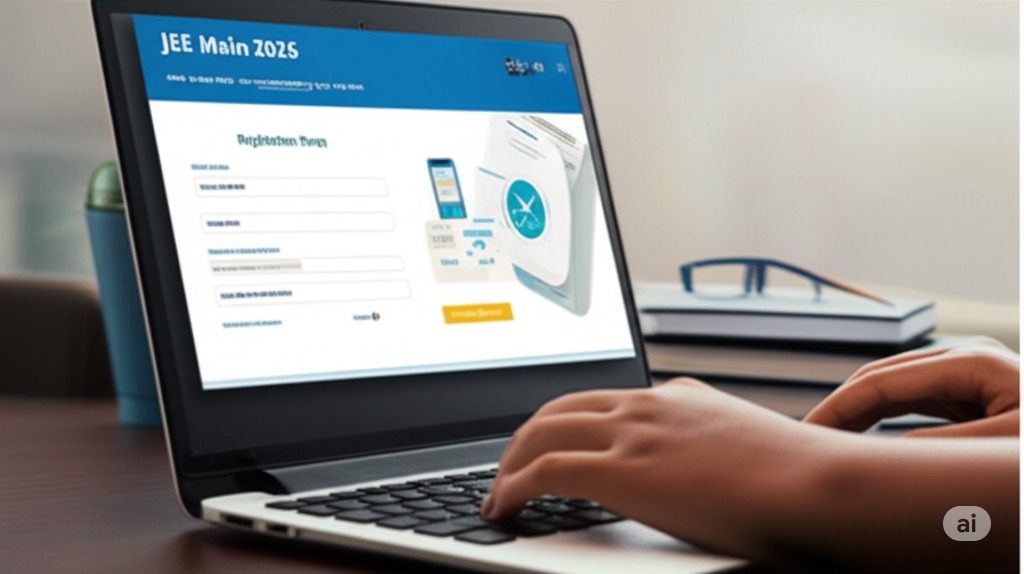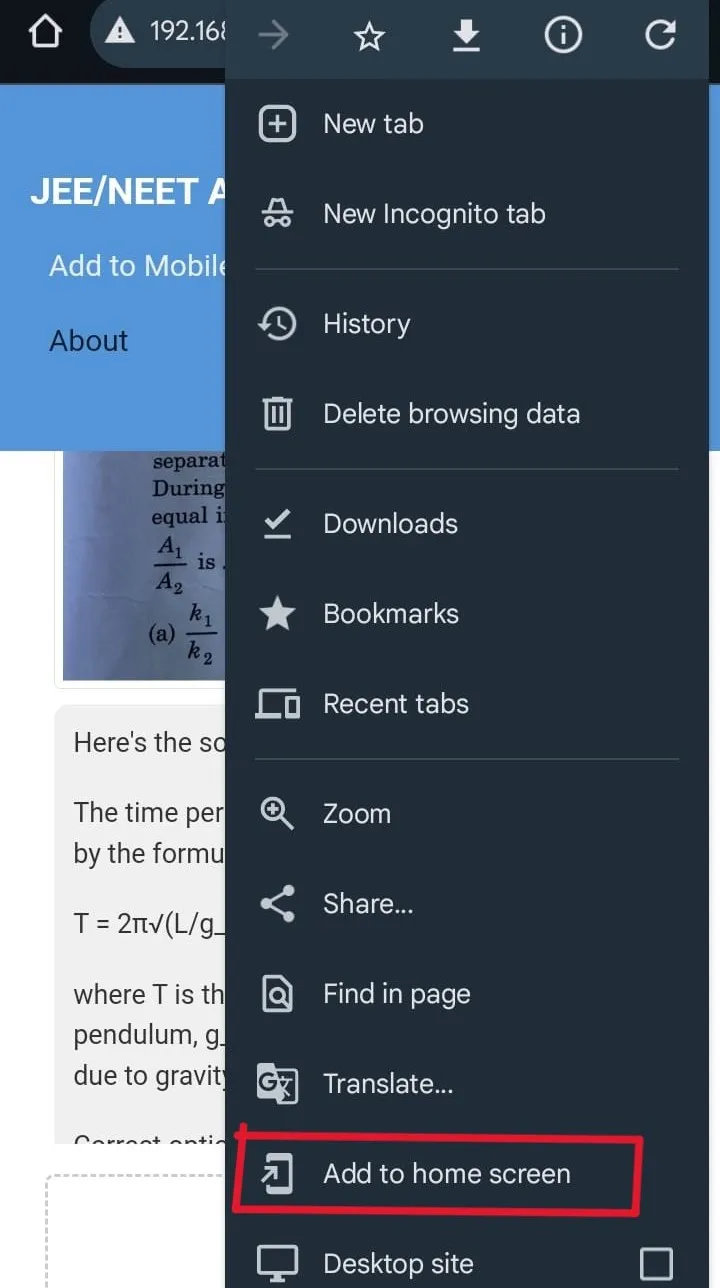The National Testing Agency (NTA) has officially opened the registration window for JEE Main 2026 Session 1. Aspiring engineers, it's time to streamline your preparation and mark your calendars — the window is open now and closes on November 22, 2025. Session 1 will be conducted between January 22 and 31, 2026.
This blog post walks you through everything you need to know: key dates, how to register step-by-step, eligibility guidelines, strategic prep timelines, and how you can leverage the interactive AI-powered tools at jee-neet-solver.in to get ahead.
Key Dates & Timeline
| Stage | Date Range |
|---|---|
| Registration Opens | October 2025 |
| Registration Closes | November 22, 2025 |
| Admit Card Release | Mid-January 2026 (approximate) |
| Session 1 Exam Window | January 22–31, 2026 |
| Result Declaration | Expected by February 2026 |
Staying on top of these dates ensures timely action and reduces last-minute stress. Particularly, begin registration well before the November 22 deadline to accommodate any technical issues or document shortages.
Who Can Apply: Eligibility Criteria Overview
Before you hit “Apply,” make sure you meet the foundational requirements:
- Educational Qualification: Completed or appearing in 2025 (or already passed) Class 12 or equivalent with Physics, Chemistry, and Math as core subjects.
- Age Limit: Generally, born on or after October 1, 2001 (check official NTA notifications; relaxations might apply).
- Attempts Limit: You are allowed a maximum of three attempts for JEE Main (over multiple sessions and years).
- Earlier Pass: Must have passed Class 12 (or equivalent) in 2024 or 2025.
- Subject Choices: Mandatory subjects — Physics and Math, with either Chemistry or Biotechnology or another language/subject as per your Board’s offerings.
Be sure to carefully review the official information bulletin—especially for any region-specific relaxations or updated eligibility rules.
Step-by-Step Guide to Register
Here’s a clear walkthrough to avoid errors and expedite your application:
- Visit the NTA JEE Main official portal during the registration window.
- Create your application profile using your valid email and phone number. Keep login credentials safe.
-
Fill in necessary details:
-
Personal information (name, parental names, DOB, category, etc.).
- Academic data (Board, roll number, percentage).
- Choice of exam center(s) — choose both first and second preference.
- Session selection: select “Session 1, January 2026.”
-
Upload required documents:
-
Passport-sized photograph and signature (clear, as per NTA’s specified dimensions and file size).
- Category certificate (if applicable).
- Preview & Confirm your details. Double-check spelling, category, academic data, and exam center.
- Make payment using net banking, credit card, debit card, or UPI. Note the fee varies by category and number of sessions selected.
- Download acknowledgment slip once payment is successful — save or print it for your records.
- Keep an eye on your email — NTA will send confirmation and the eventual admit card to your registered address.
Avoid last-minute rush! Submit your application a few days early to handle any tech glitches or document hiccups.
Strategic Preparation Timeline (Now Until Exam Day)
With registration underway, align your study schedule with the exam timeline:
October–November (Registration Period)
- Finalize application and documentation.
- Begin a focused revision cycle of high-yield topics: Mechanics (Physics), Organic Chemistry, Coordinate Geometry (Math), and Human Physiology (Biology for NEET).
- Start solving previous-year questions under timed conditions.
December (Reinforcement Phase)
- Intensify topic-wise review — do targeted practice for weak areas.
- Use mock tests to develop speed and accuracy.
- Solve sectional tests (Physics separately, Chemistry separately, etc.) to build confidence.
Early January (Refinement Phase)
- Revisit common “traps” — questions where students commonly make careless mistakes.
- Focus on subject-wise mock exams and full-length papers.
- Start light revision of formulae, key reaction mechanisms, and marking strategies.
Mid-to-Late January (Final Polishing)
- Take a few final full mocks with strict time simulation.
- Drop low-value-time topics.
- Ensure you have strong coverage of all high-yield areas, and rest well — avoid burnout.
How jee-neet-solver.in Can Accelerate Your Prep
Building momentum with structured practice is crucial, and jee-neet-solver.in gives you a smart and efficient pathway:
- Instant, step-by-step AI solutions for JEE-NEET questions: your practice is smarter, not just harder.
- Curated high-yield problem sets tailored to the latest syllabus and question trends.
- Interactive tools: embed or use on your phone/browser to solve problems any time, anywhere.
- Insight-driven dashboards: track your performance by topic, difficulty, and question type — optimize your prep time.
By combining the official schedule with interactive, data-backed practice from jee-neet-solver.in, you can stay focused, efficient, and exam-ready.
What to Watch Out For (Pitfalls to Avoid)
- Late registration: Technical issues or slow payment gateways can jam at the deadline — apply early!
- Typo trouble: Even a tiny mismatch in name, DOB, or category can lead to rejection — proofread thoroughly.
- Sporadic study patterns: A few hours of cramming won’t cut it — consistency is the key to progression.
- Ignoring “trap” questions: Often, losing marks stems from misreading or overthinking common distractors — practice “trap drills.”
- Skipping mock reviews: Always analyze which questions went wrong — do not just treat mocks as tests, but as lessons.
Final Thoughts & Next Steps
- Register before November 22, 2025 — do not wait for late fees or technical challenges.
- Stick to a structured study roadmap — refine your strategies and learn to outperform consistently.
- Back your prep with smart, interactive tools like jee-neet-solver.in — for clarity, speed, and concept retention.

